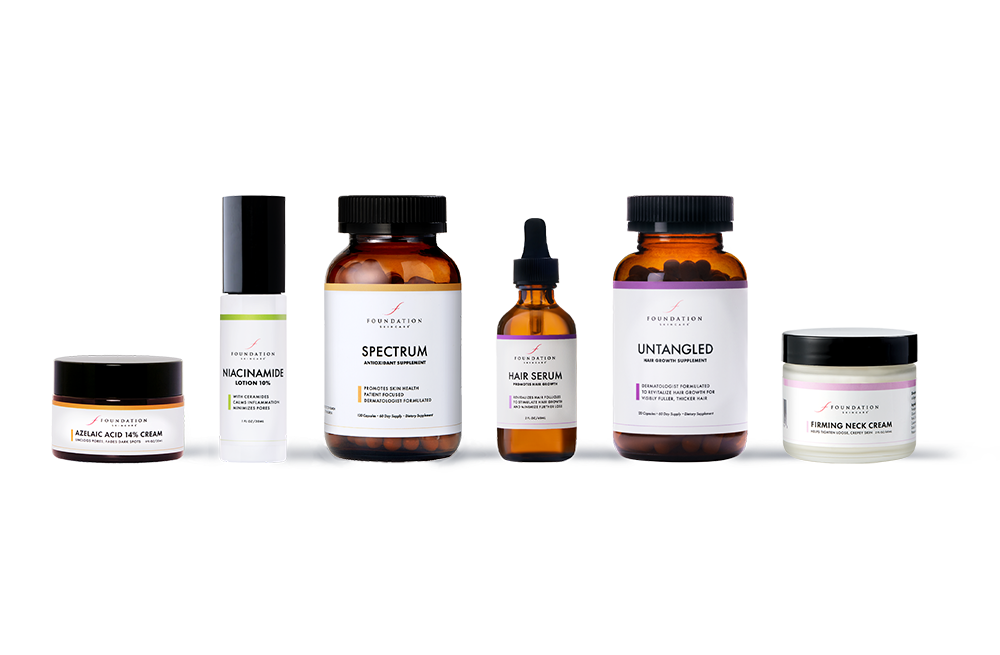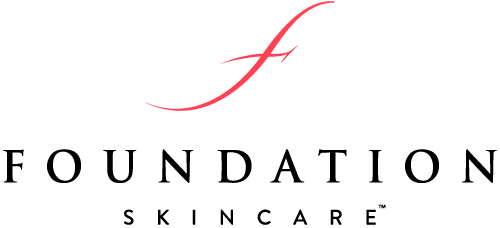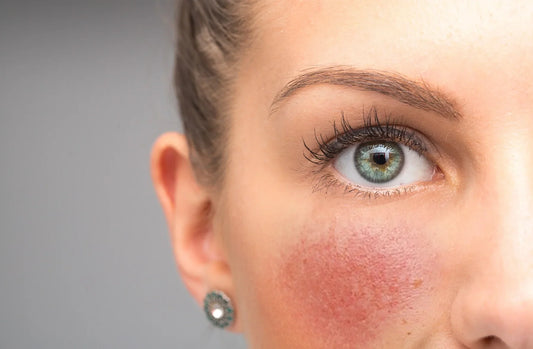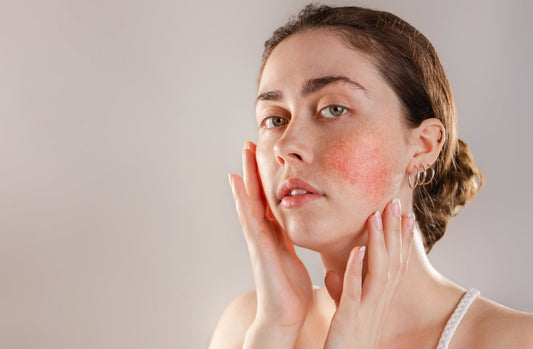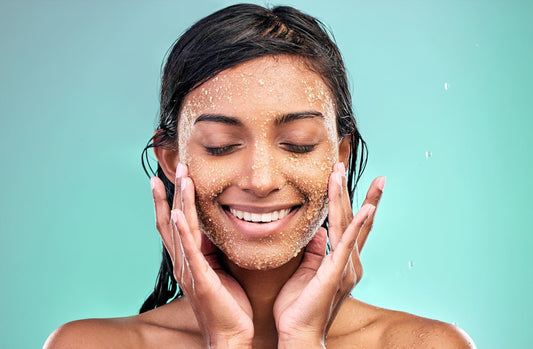Rosacea
-

The Plus Program
15% off 2 products
20% off 3 or more
Create your regimen!
No sign up required.
Discount automatically applied.Subscriptions not included.
-
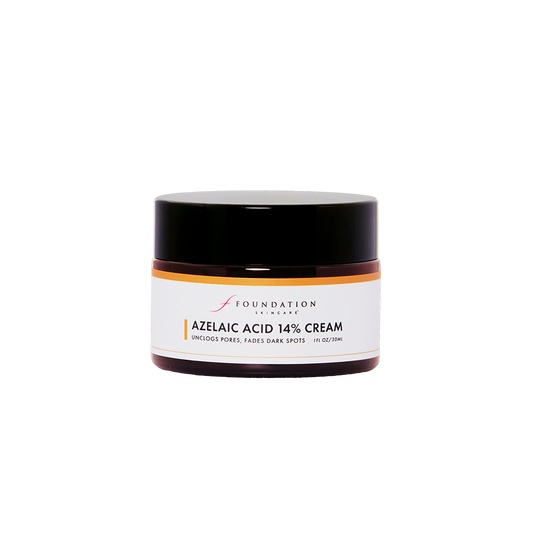
Azelaic Acid 14% Cream Subscription Available
• Reduces acne & rosacea
• Brightens skin, fades brown spots
• Unclogs pores, improves textureSee detailsRegular price $45Regular priceUnit price per -
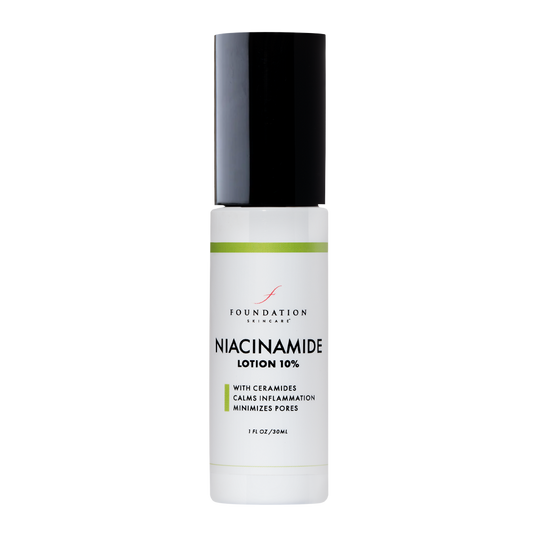
Niacinamide Lotion 10% Subscription Available
• Renews dry, dull skin and texture
• Helps retain moisture and elasticity
• Reduces inflammation & rednessSee detailsRegular price $45Regular priceUnit price per
Why our custom formulations
bring great results to rosacea patients
-
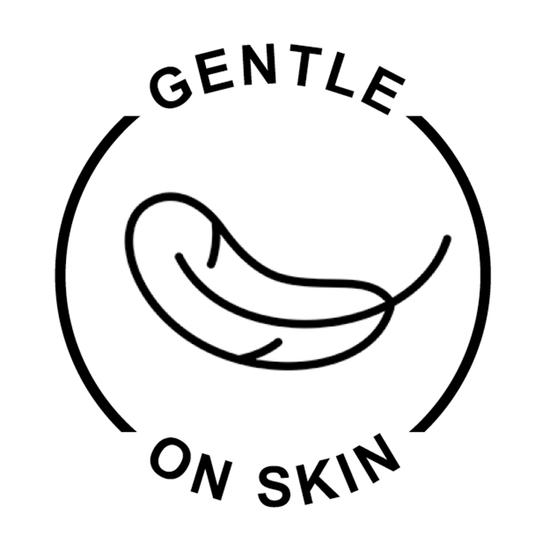
Works with even the most sensitive skin to help treat active rosacea and redness without irritation and drying.
-
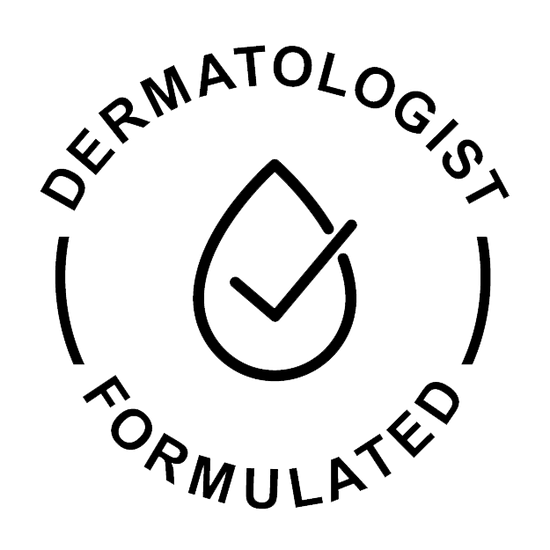
Custom formulations by a board certified dermatologist using medical-grade ingredients proven to work for rosacea.
-
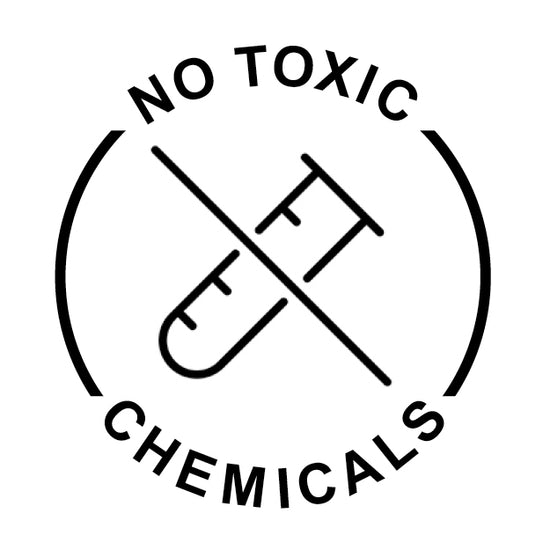
Calms inflamed skin and redness without synthetic fragrances or harsh chemicals like sulfates, parabens, PEGS and phthalates.
-

“Cleared up my rosacea within a week and also looks to be brightening my skin altogether.”
Shop Azelaic Acid 14% Cream– Kelly B.
Doctor’s insight: know your rosacea
and what you can do to calm symptoms
and prevent it from worsening.


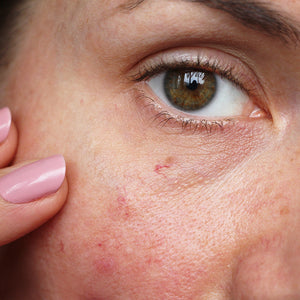

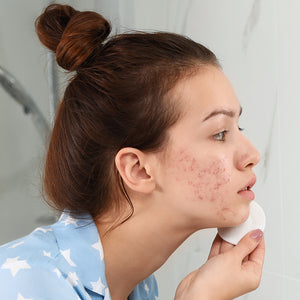
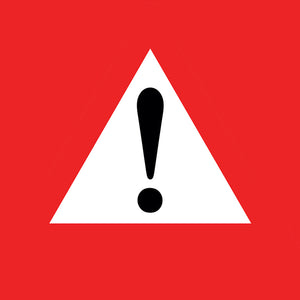
-

-
14% Azelaic Acid
strength helps heal
rosacea inflamed skin
reducing redness,
enlarged pores, bumps
and swelling.
-
Azelaic Acid + Niacinamide keep sensitive skin hydrated without drying or irritation.
SHOP ROSACEA TREATMENT -
- Dermatologist + chemist formulated
- Proven ingredients for rosacea
- Improves skin texture, fades redness
- Calms inflammation and discomfort
- Not irritating and gentle for daily use
- See money back guarantee >
- Dermatologist + chemist formulated
Collapsible content
What is rosacea?
Rosacea is a chronic inflammatory skin condition that primarily affects the face. It is characterized by redness, visible blood vessels, and sometimes pimples. The condition often begins with episodes of flushing, where the skin turns red for short periods. Over time, the redness may become more persistent, and visible blood vessels (telangiectasia) can appear. In some cases, the skin can also develop bumps and pimples, which can be mistaken for acne. Rosacea can also affect the eyes, causing them to feel irritated and appear red, a condition known as ocular rosacea.
Rosacea typically affects adults between the ages of 30 and 50 and is more common in fair-skinned individuals. The exact cause of rosacea is unknown, but it is believed to be a combination of genetic and environmental factors. Triggers that can exacerbate rosacea symptoms include sun exposure, hot or cold weather, spicy foods, alcohol, stress, and certain skincare products.
What does rosacea look like?
Frequent blushing or flushing is often an early sign of rosacea, with the skin appearing very red for brief periods before returning to its usual color. The most common signs include facial redness, which usually appears in the central part of the face such as the cheeks, nose, chin, and forehead. Small blood vessels may become swollen and visible, contributing to a red and sometimes bumpy appearance. In some cases, the skin may thicken and enlarge, particularly around the nose, a condition known as rhinophyma, which is more common in men.
What do dermatologists recommend for rosacea?
Dermatologists commonly suggest using gentle, fragrance-free skincare products tailored for sensitive skin. This may encompass mild cleansers, azelaic acid, moisturizers, niacinamide cream, and sunscreens that are non-comedogenic and hypoallergenic.
How can I prevent a rosacea flare-up?
Preventing rosacea flare-ups involves identifying and avoiding triggers, maintaining a gentle skincare routine, and making lifestyle adjustments. Common triggers include sun exposure, stress, extreme temperatures, spicy foods, alcohol, and certain skincare products. Using a broad-spectrum sunscreen with SPF30 or higher, wearing protective clothing, and seeking shade can protect against sun-induced flare-ups. A gentle skincare routine with mild, non-abrasive cleansers and regular moisturization helps maintain the skin barrier, while avoiding products with alcohol or menthol prevents irritation.
Which skincare product reduces rosacea and redness?
Skincare products containing azelaic acid and niacinamide are effective in reducing rosacea and redness. Azelaic acid has anti-inflammatory properties that help reduce redness and swelling, making it a suitable choice for managing rosacea symptoms. Niacinamide, another beneficial ingredient, helps strengthen the skin barrier and reduce inflammation, thereby decreasing redness. Using products with these ingredients can help soothe and calm the skin, improving the overall appearance of redness and irritation associated with rosacea.
What are the main causes of rosacea?
The exact causes of rosacea are not fully understood, but several factors are believed to contribute. These include genetic predisposition, as rosacea often runs in families. An overactive immune response and the presence of certain microorganisms like Demodex mites can also play a role. Environmental factors such as sun exposure, extreme temperatures, wind, and humidity are known triggers. Lifestyle factors, including the consumption of spicy foods, hot beverages, alcohol, and stress, can exacerbate symptoms. Abnormalities in facial blood vessels and skin barrier dysfunction are other potential causes.
How can I manage and control my rosacea?
Managing and controlling rosacea involves a combination of lifestyle adjustments, skincare routines, and medical treatments. Identifying and avoiding triggers is a crucial first step. Incorporating beneficial ingredients like azelaic acid and niacinamide can be particularly effective. Azelaic acid has anti-inflammatory properties that help reduce redness and swelling, while niacinamide helps strengthen the skin barrier and reduce inflammation, leading to a calmer complexion. Making dietary adjustments, such as avoiding hot beverages, spicy foods, and alcohol, can help control flushing and redness.
How is rosacea diagnosed?
Rosacea is typically diagnosed based on a physical examination of the skin and a discussion of symptoms with a dermatologist or healthcare provider. There are no specific tests to diagnose rosacea, but other conditions with similar symptoms may be ruled out through various diagnostic procedures if necessary.
Are there different types of rosacea?
Yes, there are 4 different types of rosacea and can present in different subtypes, including erythematotelangiectatic rosacea (characterized by facial redness and visible blood vessels), papulopustular rosacea (which includes acne-like bumps and pimples), phymatous rosacea (resulting in thickened skin and enlargement of facial features), and ocular rosacea (affecting the eyes).
Can rosacea worsen over time if left untreated?
Without proper management, rosacea symptoms can worsen over time. Persistent inflammation and dilation of blood vessels may lead to more severe redness, visible blood vessels, and thickened skin. It's crucial to seek medical attention and follow a treatment plan to prevent the progression of rosacea and alleviate symptoms.
Can rosacea affect other parts of the body besides the face?
While rosacea primarily affects the face, it can occasionally extend to other areas such as the neck, chest, and scalp. Ocular rosacea, which involves symptoms affecting the eyes, is also common in some individuals with rosacea.
Are there any lifestyle changes that can help manage rosacea?
Yes, certain lifestyle changes can help manage rosacea symptoms and reduce the frequency of flare-ups. These may include protecting the skin from sun exposure by wearing sunscreen and protective clothing, avoiding known triggers such as spicy foods and alcohol, managing stress through relaxation techniques, and adopting a gentle skincare routine using non-irritating products such as Foundation Skincare’s Azelaic Acid 14% cream and Niacinamide lotion.
Can rosacea affect people of all ages?
While rosacea most commonly affects individuals between the ages of 30 and 50, it can occur at any age, including in children and older adults. However, it is less common in younger individuals and tends to be more prevalent in those with fair skin and a family history of the condition. Early diagnosis and treatment are essential regardless of age to prevent worsening symptoms and complications.
What do dermatologists recommend for rosacea?
Dermatologists commonly suggest using gentle, fragrance-free skincare products tailored for sensitive skin. This may encompass mild cleansers, azelaic acid, moisturizers, niacinamide cream, and sunscreens that are non-comedogenic and hypoallergenic.
Why is azelaic acid preferred by dermatologists over retinoids for rosacea?
While retinoids can be effective for certain skin conditions, azelaic acid is often considered a more suitable and well-tolerated treatment option for rosacea due to its anti-inflammatory, antibacterial, and gentle nature. Additionally, azelaic acid is less likely to trigger flare-ups or exacerbate existing symptoms of rosacea compared to retinoids, making it a safer option for long-term management of the condition.
How does niacinamide cream help with rosacea?
Niacinamide has anti-inflammatory properties that can help reduce redness and inflammation associated with rosacea. It can also help fade post-inflammatory hyperpigmentation (PIH) caused by rosacea flare-ups, leading to a more even complexion over time. Niacinamide is generally well-tolerated by most skin types, including sensitive skin, making it a suitable option for individuals with rosacea-prone skin who may be more prone to irritation from other skincare ingredients.
Is hyaluronic acid a good moisturizer choice for those with rosacea?
Hyaluronic acid can be a suitable moisturizer for individuals with rosacea. Its hydrating properties help maintain the skin's moisture balance, which is important for rosacea-prone skin that can be sensitive and prone to dryness. However, while hyaluronic acid provides hydration, it may not directly address other symptoms of rosacea such as redness or inflammation. Therefore, it's often recommended to use hyaluronic acid alongside anti-inflammatory skincare products designed to target rosacea symptoms, such as azelaic acid and niacinamide cream.
